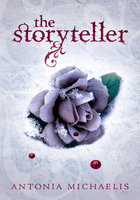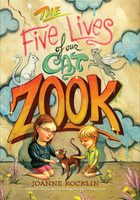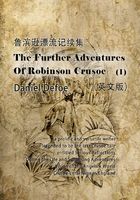PROFILE OF WILLIAM GOLDING
Life and Family
He was born in 1911, in his grandmother's house in Cornwall.
He grew up in Marlborough, Wiltshire.
His father, Alec, was a teacher with socialist views.
His mother, Mildred, campaigned for women's suffrage.
He had an older brother, Joseph, also a teacher.
He married Ann Brookfield, an analytical chemist, in 1939.
He had two children, named David and Judith Diana.
He died in 1993.
Education
He attended Marlborough Grammar School, 1921–30.
In 1930, he went to Oxford University. He read Natural Sciences for two years but then changed to English Literature.
Career
He served in the Royal Navy during the Second World War.
Between 1945 and 1961, he taught at Bishop Wordsworth School in Salisbury.
He had four books published while he was teaching – many publishers had earlier turned his books down.
Charles Monteith at Faber and Faber saw the quality of Lord of the Flies and published it in 1954.
Role during the Second World War
He joined the Royal Navy in 1940.
He took part in the pursuit of the German battleship Bismarck.
He took part in the invasion of Normandy on D-Day.
By the end of the war in 1945 he was a lieutenant in command of a rocket landing craft.
Writing
Lord of the Flies, his first novel, was published in 1954.
Other key texts include:
The Inheritors (novel) 1955
The Brass Butterfly (play) 1958
The Spire (novel) 1964
The Scorpion God (three short novels) 1971
Darkness Visible (novel) 1979
Rites of Passage (novel) 1980
Close Quarters (novel) 1987
Fire Down Below (novel) 1989
Recognition
In 1980, he won the Booker Prize for Rites of Passage (the first novel in the trilogy titled To the Ends of the Earth).
In 1983, he was awarded the Nobel Prize in Literature.
In 1988, he was knighted.
TIMELINE
1500s British exploration of the New World;
British colonization begins.
1600s British settlements in Virginia, Newfoundland,
Bermuda, and elsewhere;
East India Company formed.
1776 American independence from Britain.
1807 British abolition of slave trading.
1833 Abolition of slavery in the British Empire.
1837 Victoria becomes Queen of Great Britain and Ireland.
1877 Queen Victoria proclaimed Empress of India.
1901 Death of Queen Victoria; Edward VII becomes king.
1914 Assassination of Archduke Franz Ferdinand, amongst
other factors, sparks World War I.
1918 11 November: World War I ends.
1924 The British Empire Exhibition held at Wembley.
1939 3 September: Britain and France declare war on
Germany.
1940 'The Blitz' begins, lasting until May 1941.
1941 Sinking of the Bismarck – a key ship in the German
Navy.
1944 6 June: D-Day landings in Normandy.
1945 7 May: Germany concedes defeat;
8 May: 'VE Day', the end of war in Europe.
6 and 8 August: use of atomic weapons on
Hiroshima and Nagasaki.
1947 India granted independence.
1948 Britain ends its rule in Palestine.
National Health Service created in Britain.
1953 British troops leave Egypt.
1954 Lord of the Flies published.
1981 Decolonization largely complete.
The British Empire is almost entirely disbanded.
HISTORICAL CONTEXT
Britain and Imperialism
The British Empire was arguably the most extensive empire ever to have existed, at its peak covering almost a quarter of the world's land and governing a fifth of the world's population. The phrase 'the sun never sets on the British Empire' derived from the idea that the Empire was so widespread that it was always daytime in at least one part of it.
Discovery and Exploration turn to Settlement
English exploration of the 'New World' began at the end of the fifteenth century, first becoming significant with the essentially rapacious activities of adventurers like Walter Raleigh in the Americas. The first half of the seventeenth century saw the emergence of colonial ambitions result in the establishment of the first permanent English settlements in Virginia, Bermuda and the Caribbean island of Barbados, amongst others. The failure of the Kingdom of Scotland's own endeavours to form an empire in the Americas was one of the primary causes for the integration of Scotland into Great Britain in 1707.
Trade
New settlements outside Europe brought territorial expansion and sometimes great mineral wealth. They always offered prospects of access to new resources and opportunities. 'New World' crop discoveries included potatoes, tomatoes and tobacco. The creation of new trade routes magnified Britain's own export opportunities, further stimulating the economy. Another type of trade supported British colonial expansion from the seventeenth century: the burgeoning slave trade. Hundreds of thousands of Africans were transported to British colonies in the West Indies and North America until Britain's abolition of slave trading in 1807. From the late eighteenth century (particularly after American independence from Britain was declared in 1776) the focus of Empire moved from west to east – especially to India (but also to locations as distant as the region of Australasia). The privately owned East India Company amassed incredible power, maintaining its own army and governing an ever-increasing proportion of the Indian subcontinent; it was the dominant power among India's rulers until the mid-nineteenth century, when the British government formally took charge of its domains.
The Dominance of the Royal Navy
The key to Britain's imperial expansion was its power at sea. The Royal Navy emerged in the reign of Henry VIII but was not professionalized until the eighteenth century. The defeat of the French Navy at the Battle of Trafalgar in 1805, followed by the defeat of the French Army at the Battle of Waterloo in 1815, left Britain as the dominant extra-European power and marked the beginning of what can be seen as Britain's imperial century, roughly covering the life of Queen Victoria (1819–1901). In the eighteenth and nineteenth centuries, Britain's overseas trade and its industries expanded massively, each fuelling the other, and Britain maintained its mastery of the seas with developments in navigational technology, cartography, and the manufacture of ships and armaments. From the time of the suppression of the slave trade in the early nineteenth century until well into the twentieth century the Royal Navy was regarded by many Britons as a romantic symbol of exploration, civility, order and Christianity in the exotic world of the savage 'other'. Nevertheless, its role was to support an empire essentially beneficial to Britain.
Peak and Decline
The post-World War I settlement saw the British Empire further extend its boundaries, as it took control of many of the former German and Ottoman empires' territories, yet the twentieth century is, in fact, notable for the demise of the British Empire. By the end of World War I it was clear that the self-governing 'white dominions', notably Australia and Canada, would no longer automatically follow the lead of the 'mother country' in wars or foreign affairs. The creation of the Irish Free State in 1922 was another blow to the union of the empire. Furthermore, after the Second World War, it became increasingly difficult for Britain to maintain imperial claims over its colonies in the face of increasing calls for self-governance; this principle was supported in the charter of the new United Nations and, after all, Britain had gone to war supposedly to support Poland's desire to resist Nazi quasi-colonial expansion. With considerable opposition from those traditional Britons who idolized the British Empire, independence was granted to India in 1947 and to other colonies in Asia and Africa through the 1950s and 1960s. In the same period British forces also left Palestine, Egypt and other regions of the Middle East which had been British-controlled but were not formally part of the Empire.
Legacy
The British Empire was a great source of pride to Britons. For many years, it was regarded as the pillar which supported the world's most powerful economy and Britain's armed services acted in part as a global police force. Rule of the empire allowed the export not only of British products but also industrial capitalism and parliamentary democracy. However, as well as its former (though not unique) role in the slave trade, Britain was also the perpetrator of extensive colonial brutalities, which have become increasingly well documented in recent decades. In the second half of the twentieth century and in the twenty-first, faith in the 'civilizing' effect of the British Empire has also been much undermined by the years of political and social turmoil in post-colonial nations around the world from Afghanistan to Sierra Leone and from Bangladesh to Iraq.
Post-War British Society
William Golding began writing Lord of the Flies in 1951, six years after the Second World War ended (although it was not published until 1954). Fear and change were dominant themes for British people. By 1951 the Americans and the Soviets were menacing human existence with the threat of atomic weapons and many in Britain saw world communism as being as dangerous a threat as Hitler's Germany had been. The post-war governments had implemented an austerity programme to rebuild the shattered British economy. How that might be achieved and society be remodelled in the process remained uncertain.
The Impact of War
The Second World War shook the foundations of British society, not only because around 260,000 Britons died on active service. Civilians were targeted to an unprecedented degree: some 60,000 died in the Blitz of Britain's great cities and industrial centres and in other attacks. Many historical accounts describe how British society responded with a unity of determination, perhaps most memorably represented even before the Blitz by the 'spirit of Dunkirk', where flotillas of civilian ships helped rescue defeated British troops from extermination or capture on the beaches of France.
Virtually everyone participated in the war effort in some way. The young men in the armed services came from every part of the United Kingdom and many of those too old or too young to fight, or exempt from military service because they worked in war industries, joined the Home Guard. Many women contributed to the war effort, producing munitions, working on farms or serving in non-combat military roles.
The war caused trauma and destruction but also, to a limited degree, eroded some of the persistent social inequality in Britain. Conscription into the armed forces applied to all able-bodied men, no matter how privileged their background, and the evacuation of children from cities threatened by bombing brought the urban and rural communities into closer contact. Rationing affected rich and poor while, for the second time in a quarter of a century, women proved their worth as workers not just as wives and mothers.
Political Consensus: The Welfare State
With victory in 1945, many Britons began asking why, if a collective effort had won the war, peacetime collectivism should not regenerate Britain into a beacon of social harmony. By 1950, the so-called welfare state had been created: secondary education and pension provision had been reformed and expanded; social security supported those unable to work; virtually full employment for all those capable of working had been achieved and the National Health Service had been established. None of this was based on the socialist principle of redistributing wealth but rather on the idea of national insurance: every working individual paid a contribution to be guaranteed a 'national minimum' in the event of unemployment, sickness or old age. Post-war Britons had rejected both fascist and Stalinist totalitarianism and the widespread poverty and unemployment of the 1930s. A consensus developed and successive governments expanded rather than dismantled the welfare state.
Education in Post-War Britain
An important element in post-war welfare development was the extension of the school-leaving age to fifteen for all British children. Universal education was a reality but there remained a disparity in the quality of educational provision and the future prospects it provided. Fee-paying schools gave unparalleled opportunities to those from richer families, and grammar schools taught academic subjects to students from largely middle-class families. A small number of technical schools taught vocational skills, mainly to children from working-class backgrounds, but the majority of children went to secondary modern schools and were expected to end their full-time education with few qualifications and enter the workforce at the age of fifteen. Social mobility had increased dramatically since the inter-war period but the school system remained a significant obstacle to equality of opportunity in Britain.
The Horrors of War
There was a universal reaction of shock and disgust as the full extent of the Holocaust was realized at the end of the war. The Nazi genocide of approximately six million Jews and the extermination of millions of other minorities appalled the British public. At this point, the even more extensive atrocities committed by Stalin in the Soviet Union remained largely unknown. Public support for military intervention in opposition to the 1950 invasion of South Korea by North Korea might appear surprising given the legacy of the Second World War, but many people feared appeasing aggression after such an approach had failed so dramatically in response to Nazi Germany. Such concerns were amplified by the fear that the development of the Soviet atom bomb would encourage the spread of international communism. The potential for mass destruction demonstrated by the atomic attacks on Hiroshima and Nagasaki in 1945 played on many Britons' imaginations and consciences. The 1950s saw the emergence of the Campaign for Nuclear Disarmament, with those opposing the nuclear deterrent arguing that a nuclear arms race would exacerbate tensions, heating up the Cold War rather than preventing conflict.
The Inevitability of British Moderation?
It is tempting to suppose that the people of Britain would always have rejected totalitarianism, that tolerance and fairness would inevitably characterize British sentiment. Yet such a view is simplistic. In the 1930s Britain had its own communist and fascist sympathizers and many Britons of all political persuasions had favoured appeasement of Nazi Germany, even though the brutality of Hitler's regime was already clear. Furthermore, whilst the Holocaust was the responsibility of Nazi Germany, British ideas had indirectly played their part. It was a British scientist, Sir Francis Galton, who advocated (and coined the term) eugenics, a powerful influence behind Hitler's plans for 'genetic cleansing'. Furthermore, during the Boer War, it was British generals who held South African civilians in concentration camps, where conditions and death rates were appalling. In this longer view of history, it would appear that the boundaries between collective good and evil have often been more blurred than one might like to think. To Britons of the 1950s, war and the horrors it brought might well result from an external attack but could also arise from hidden and subversive internal weaknesses.














